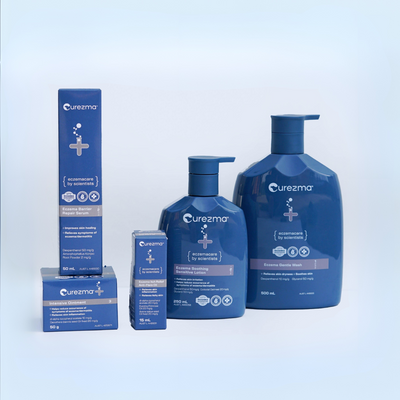5 Lessons in Advocating for Eczema

Living with eczema is not just about managing flare-ups; it’s also about educating others and advocating for yourself or your child. Here are five valuable lessons shared by eczema warriors on how to navigate and advocate for eczema in everyday life.
-
It’s Okay to Advocate for Managing the Condition, Not Solving It
When managing eczema, people might push you to find a ‘fix.’ But one parent shared:
"People think they can identify and fix the trigger, but sometimes you just have to manage it."
Advocate for understanding that eczema is often about management, not an easy fix.
-
Equip Caregivers with Knowledge
If you’re navigating eczema for a child, it’s crucial to educate caregivers like daycare staff on how to manage it.
"Explaining eczema to daycare staff, the triggers, and ways to manage it is essential. I also share information from the Eczema Association."
Download our Childcare Guide here for a comprehensive approach to educating caregivers about eczema.
-
Use Creative Advocacy to Educate
One way to spread awareness is through creative means. A parent shared their experience:
"I’m writing a children’s book about what it's like to live with eczema, inspired by my son’s journey."
Creative advocacy can be a powerful tool in educating others and raising awareness.
-
Set Boundaries When People Don’t Understand
Sometimes, strangers may ask questions about your condition, and it’s okay to protect your emotional well-being.
"You don’t have to explain your skin condition to everyone. Set boundaries and simply say, 'I’m not comfortable talking about it.'"
Advocating for yourself includes knowing when to say no and guarding your mental health.
-
Educate Others on the Importance of Gentle Words
Words can impact mental health just as much as the physical symptoms of eczema.
"I always remind people to be gentle with their words because some 'advice' can be hurtful."
Advocate for sensitivity and kindness when others speak about your condition.
These lessons show that advocating for eczema is about educating others, setting boundaries, and standing up for yourself or your loved ones. Whether you're sharing information, speaking up, or simply asking for understanding, you're making a difference.








